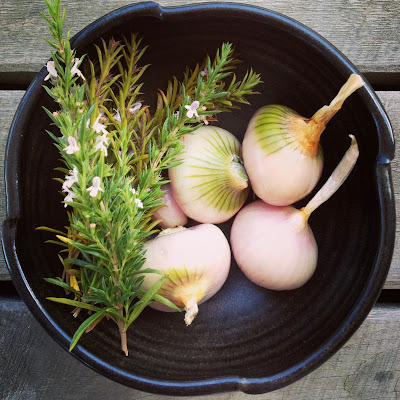A mammoth pick is ahead of us tomorrow for Farm Gate Market
on Sunday. Pre-orders are encouraged for all of the produce listed below as
there may be limited quantities of some lines. Please leave a comment below or
email us at provtas@gmail.com before 4pm Saturday to order, we will reply to confirm your order. If stored properly everything
should be in wonderful condition for your festive feasting.
Broad beans.
We’ll have both baby and grown up broad beans for sale this Sunday in good
quantities. The young ones are beautiful podded and dropped briefly into
boiling water, drained and promptly sprinkled with sea salt and anointed with a
little butter or olive oil and served as is. The older ones I love to make a
dip with. I boil them with bay leaves, parsley stems, garlic cloves and
peppercorns for about ten minutes then drain, and puree them with freshly
toasted and ground cumin and coriander seeds, a little chilli or paprika, lemon
juice, olive oil and salt to taste. Older beans are also a delicious addition
to bubble and squeak on boxing day, and both sizes can be thrown in their pods
onto the barbeque, given a liberal sprinkling of salt and nibbled straight from
the pods edamame style, or the young beans eaten pod and all, just watch out
for the occasional bean that may pop out of its pod as they heat up!
Stuffing bundles.
You know that thing where a recipe calls for a few sprigs of thyme, a little
sage, some parsley…? You spend a fortune on little bundles of herbs and only
use a bit of each bunch. Well, we’ve got the answer for you! We’re making up
bunches of herbs including sage, thyme, lemon scented savoury and parsley (and
possibly other tasty things that the chef deems delicious with a roasted bird!)
perfect for using in the stuffing of your turkey, scattering over roasting veg
or slipping under the skin of a chicken.
 |
| Lemon scented savoury, like lemon thyme, but with a fuller flavour and slightly peppery bite. Delicious, beautiful and easy to grow. Available in our stuffing bundles and as plants in flower. |
French tarragon.
The perfect, most delicate herb that melds beautifully with butter and is
wonderful on almost anything; beans, chicken, eggs,
Tea posies. We
love fresh herbal tea! Our posies for this weekend will include delicious herbs
to aid digestion and relaxation. Anise hyssop, Mexican tarragon, lemon
liquorice mint, lemon balm, lemon verbena and German chamomile. Perfect to make
the designated driver feel spoilt and those who have over indulged feel
refreshed. Just drop the fresh leaves into a warmed teapot and leave to infuse,
any remaining herbs will dry beautifully for later use.
Radishes. Lovely
served as they are with cultured butter and salt, cooked briefly on the
barbeque, tops and all, or lightly pickled. A tasty, refreshing and extremely
pretty addition to your table.
We’ll also have our salads, bunches of lovely, tender, young
bay leaves, chives, kunzea (perfect for a Tasmanian flavour to your roast
vegetables and meats or delicious as a tea), native pepper leaves and more will
be added to this list as we gather tomorrow.
If you’re short of a gift or two we’ll have our usual range
of herbs and edible plants, some potted into beautiful old terracotta pots,
edible flower posies and gift vouchers for edible gardeners.
 |
| Our newest colleagues, beautiful piglets from Weston Farm. |
Thank you all so much for your interest, support, custom and
companionship as we’ve enjoyed our first year of supporting our family through
growing food and plants for you. Every smile and chat at our stall, or conversation and kind word in the
virtual world, means so much to us and we wish you and yours a healthy, fulfilling
year ahead.
 |
| This week's excitement! |
 |
| Green huntsman in the celtuce. |






















